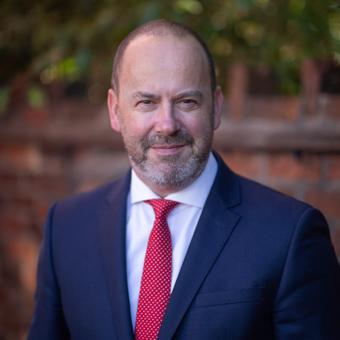Tom Ferguson, senior counsel at TalkTalk...
Tom, firstly can you tell us a bit about your career to date?
I trained at Addleshaw Goddard’s Manchester office, qualifying in the corporate team. During my training, I spent four months on secondment to British Vita (now the Vita Group). After a couple of years, I went to Eversheds before then joining TalkTalk in 2010.
Why did you choose to become an in-house lawyer?
When doing a corporate transaction, I was always really curious to understand why clients were doing the deal and what was going to happen after the inevitable all night completion meeting! I figured the best way to find out was to go in-house and have a much more hands on experience.
What do you think are the core specialisms that a successful in-house lawyer should have?
Where to begin? I hesitate to say legal knowledge, but it isn’t to be underestimated – it’s the reason why a business employs a lawyer. However, straight legal advice isn’t enough. We spend much of our time with senior colleagues, so it is important to be curious enough to find out what makes them tick, to learn the language they speak and to get under the skin of what they’re trying to achieve. From their lawyers, they want people who are accountable and make decisions – so no fence-sitting advice notes! You won’t know the answer to everything, so you need to be brave enough to step out of your comfort zone to help solve a particular problem.
The telecoms sector has evolved over the past 10 years so what do you think are the main challenges for the market right now?
There are three: regulation, technology and customers. This is a regulated industry so some things can take a long time to change. The speed of change in how people now use mobile and broadband services means significant investment in new and better technologies to stay ahead of customer demand is essential. Also, customers are rightly more demanding about the quality of service they get – telecoms services are often referred to as another utility - but unlike gas, water and electricity this is the only utility where prices are going down!
On the flip side, what do you think are the main opportunities?
The companies that deliver the best customer experience will win and there is definitely a trend towards more online interaction and self-help. As a lawyer, helping a business get better at what it does so it can deliver for its customers is a real pleasure and allows us to think creatively about how we can do that. This also means that there’s a lot of change where legal teams can have a really positive impact.
How have these affected your own career?
My wish for getting under the skin of a business has come true! My legal knowledge has both broadened and deepened, but so too has my technical and commercial knowledge. I’ve developed a real sense that what I do actually has an impact I can see; whether in helping to deliver a cost saving or rolling out a new product.
How do you stay one step ahead?
By asking “what’s the goal?” and “how can we do this better?” Know-how is just as important in-house but it’s harder to obtain, so I make a point of attending external CPD sessions (which also provide networking opportunities). I’m also part of a mini-team at TalkTalk working on rolling out business-specific know-how to the legal team. While there’s always more law to be learned, it’s the non-legal skills that are most important. I’m fortunate that there’s significant investment at TalkTalk in peoples’ careers, so I’ve had the chance to attend some inspirational courses and have recently joined a mentoring scheme.
Can you see what you do changing in the short to medium term?
Change is a fact of life, and learning to work with it is important. The legal sector is no different, and this will also affect in-house life. For me, gaining a breadth of business skills is important so that I can stay on top of the inevitable changes to the profession.
What do you think are the main benefits for an organisation that employs an in-house legal team?
It has been said that working in-house is the closest to being a pure lawyer: there isn’t the conflict between advice and fee earning found in private practice. This means that advice can be more focussed to the organisation’s wider objectives. Where work is outsourced, the in-house team usually has a much better picture of what good value for money is and how to get better advice from firms. At a people level, lawyers have the ability to assimilate large amounts of detailed information and are naturally motivated to steer a path to a considered solution – we can work as both enablers and as a check and balance on some of the more out there ideas!
Finally, any words of advice for readers of The Brief who may be thinking of becoming an in-house lawyer?
If you can, do a secondment. In fact, I think it should be a requirement for qualification and promotion in a law firm so people can learn first-hand the daily challenges their clients face. Also, be brave enough to go into a world you don’t completely understand, and where work will arrive in your inbox that makes you think “I have no idea how to do this”. Go with it... it’s great!









